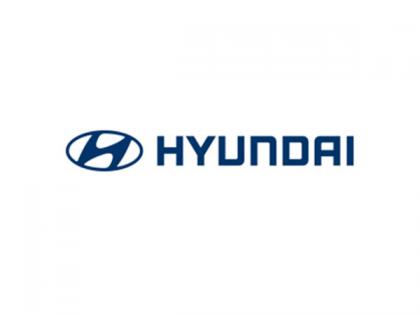Hyundai Motor joins hand with General Motors to develop five vehicles to be launched in 2028
By ANI | Updated: August 7, 2025 15:44 IST2025-08-07T15:37:31+5:302025-08-07T15:44:47+5:30
New Delhi [India], August 7 : South Korea's automotive giant, Hyundai Motor Co. has done a strategic partnership with ...

Hyundai Motor joins hand with General Motors to develop five vehicles to be launched in 2028
New Delhi [India], August 7 : South Korea's automotive giant, Hyundai Motor Co. has done a strategic partnership with General Motors of U.S. to develop five next generation vehicles by 2028.
As per Pulse news Korea, the two companies plan to jointly develop a total of five next-generation vehicles. Production of the electric van in the U.S. is slated to begin as early as 2028.
The deal includes four models for the Latin American market, a mid-size pickup, compact pickup, compact passenger car, and compact SUV all of which will offer internal combustion and hybrid options. A fifth model, an electric commercial van, will be aimed at the North American market.
The two companies expect production and sales of over 800,000 units annually once mass production of the jointly developed vehicles begins. Development responsibilities will be split, with GM leading the mid-size truck platform and Hyundai taking charge of compact vehicles and the electric van.
The joint development plan stems from the memorandum of understanding (MoU) signed by Hyundai Motor and GM in September 2024 to pursue comprehensive cooperation.
"Hyundai's strategic collaboration with GM will help us continue to deliver value and choice to our customers across multiple vehicle segments and markets," said Jose Munoz, president and CEO of Hyundai Motor. "Our combined scale in North and South America helps us to more efficiently provide our customers more of what they want - beautifully designed, high-quality, safety-focused vehicles with technology they appreciate."
The joint development initiative had been delayed earlier this year due to prolonged negotiations focused on accelerating the design and production process. The automakers now anticipate that platform costs could be reduced by more than 50 per cent, citing expected gains from shared engineering, streamlined logistics, and a more efficient supply chain.
Design and engineering for the Latin American models are already in progress, with both companies exploring further collaboration in global markets. The door is also open to expanding the partnership beyond the initial five vehicles to include additional powertrain systems and new regional markets.
Disclaimer: This post has been auto-published from an agency feed without any modifications to the text and has not been reviewed by an editor
Open in app